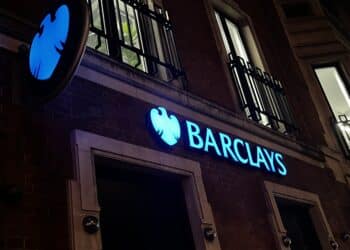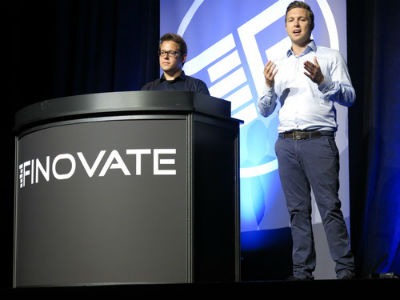2016 Innovators to Watch: 1 to 5
1. Lucy Peng, CEO, Ant Financial
 Ant’s latest fundraising round – the largest ever anywhere – of $4.5 billion, and its overall valuation of more than $60 billion, have turned the Alibaba spinoff into one of the most valuable private tech companies in the world. Launched in 2014, Ant Financial is the brainchild of Lucy Peng, who also co-founded the parent Alibaba. Ant Financial’s Alipay digital payments platform claims 451 million users, with an average of 153 million daily transactions.
Ant’s latest fundraising round – the largest ever anywhere – of $4.5 billion, and its overall valuation of more than $60 billion, have turned the Alibaba spinoff into one of the most valuable private tech companies in the world. Launched in 2014, Ant Financial is the brainchild of Lucy Peng, who also co-founded the parent Alibaba. Ant Financial’s Alipay digital payments platform claims 451 million users, with an average of 153 million daily transactions.
Ant’s other services include investments through its money market fund Yu’e Bao, loans through Ant Microloan, and the peer-to-peer lending platform Zhao Cai Bao, and microloans (and eventually deposit accounts) through MYbank. Peng was an economics professor in Hangzhou before Alibaba’s founding in 1999, as was Alibaba CEO Jack Ma. She is now looking to take her company global, promising to sign up 2 billion users in 10 years — close to one-third of the world’s population.
2. Charles Scharf, CEO, Visa Inc.

When did Visa stop being just a good, old payment network, and transform into an innovation powerhouse? Well, many point to the arrival of the former Chase and Citigroup exec Charles Scharf. In the age of PayPal and Pay With Amazon, Scharf made it clear that Visa will have none of it, and will now compete full-steam. In fact, he made PayPal the target of his most recent warning: “I’ve been very, very clear on this one which is, if you are foe, you’re not a friend. So, they [PayPal] drive a lot of business our way — that’s supposedly the friend part of it. The foe part is where they then use historically those transactions to do everything they can to get those to ACH, where we and our clients get disintermediated from the transaction, the entire experience, and it causes tremendous customer service problems for the bank specifically.”Not even a month after the warning, Visa announced a private label digital commerce app, noting that more than 40 banks have already implemented it, or are soon to. We are waiting (anxiously) to see how this “payments war” evolves.
3. Blythe Masters, CEO, Digital Asset Holdings
 Blythe Masters is no stranger to new ideas. As an executive at JPMorgan Chase in the 1990s, she hit on the idea of offloading lending risk to another bank in exchange for a fee — the now-famous credit-default swap. Post-crisis, Masters is at the cutting edge of finance once again, helming the distributed ledger powerhouse Digital Asset Holdings. DAH minted one of the blockchain world’s first and largest real-world deals with the Australian Securities Exchange, which invested $10.5 million in DAH for the privilege of testing out its product. Masters’s involvement in blockchain was an important validation of the space, which some bankers looked askew at due to its association with bitcoin. Masters has also shown savvy in m&a, picking up the innovative Hyperledger team, whose technology now underpins a massive distributed ledger consortium that includes IBM, Accenture, R3 CEV — and Masters’s old employer, JPMorgan.
Blythe Masters is no stranger to new ideas. As an executive at JPMorgan Chase in the 1990s, she hit on the idea of offloading lending risk to another bank in exchange for a fee — the now-famous credit-default swap. Post-crisis, Masters is at the cutting edge of finance once again, helming the distributed ledger powerhouse Digital Asset Holdings. DAH minted one of the blockchain world’s first and largest real-world deals with the Australian Securities Exchange, which invested $10.5 million in DAH for the privilege of testing out its product. Masters’s involvement in blockchain was an important validation of the space, which some bankers looked askew at due to its association with bitcoin. Masters has also shown savvy in m&a, picking up the innovative Hyperledger team, whose technology now underpins a massive distributed ledger consortium that includes IBM, Accenture, R3 CEV — and Masters’s old employer, JPMorgan.
4. Dominic Venturo, Chief Innovation Officer, U.S. Bank
 It is hard to find a “most influential” list in fintech that doesn’t include Dominic Venturo, the chief innovation officer of U.S. Bank.
It is hard to find a “most influential” list in fintech that doesn’t include Dominic Venturo, the chief innovation officer of U.S. Bank.
This is not just because Venturo is wicked smart, or because US Bank is one of the key forces behind industrywide innovation banking today. It is, I would argue, because Venturo is just so gosh darn nice and giving. This means that when Venturo engages in an innovation endeavor, he does so with a full effort, not the “M&T” (“mouth and talk” as the slang goes) that is unfortunately becoming somewhat more common in fintech. Just follow his Twitter feed and you’ll get a window into what it means to be a banking executive of paramount curiosity (and, it should be noted, humor).
Simply put, over the last couple of years Venturo has been at the epicenter of fintech innovation. We’re expecting him to continue as such.
5. William Ready, Global Head of Product & Engineering, PayPal
 PayPal has emerged from its “lost decade” — the term comes from investor and former PayPal EVP Keith Rabois — and is taking bold steps to resume its position atop mobile payments. Challenges abound, but so do opportunities, most of them based on PayPal’s updated tech stack, largely taken from Braintree, acquired in 2013. Also acquired was Braintree CEO William Ready, who had the genius to acquire Venmo in 2012 for just $26.2 million.
PayPal has emerged from its “lost decade” — the term comes from investor and former PayPal EVP Keith Rabois — and is taking bold steps to resume its position atop mobile payments. Challenges abound, but so do opportunities, most of them based on PayPal’s updated tech stack, largely taken from Braintree, acquired in 2013. Also acquired was Braintree CEO William Ready, who had the genius to acquire Venmo in 2012 for just $26.2 million.
Venmo processed $3.4 billion in P2P payments in Q1. Ready wasn’t shy about blasting PayPal before he was on the team, and PayPal deserved it, missing out on key innovations Square and Stripe delivered instead. With Ready running product, that won’t happen again.












